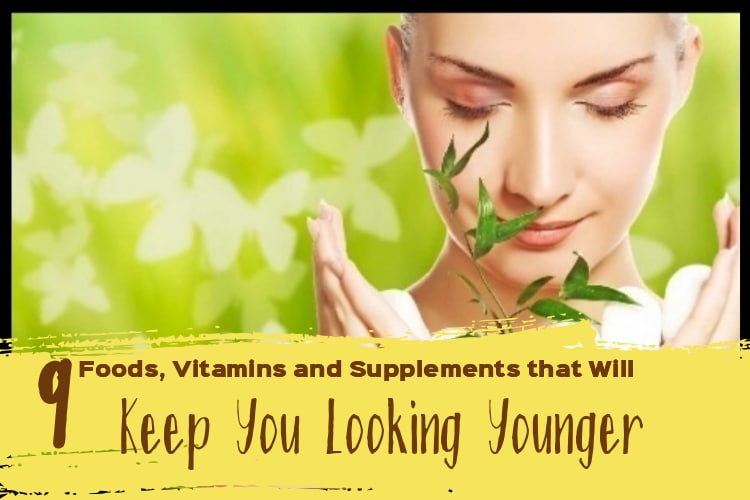
Best Vitamins To Look Younger
Table of Contents
Here are the best vitamins to look younger
Vitamin A for wrinkles
Best overall age-fighter
Find it in: OTC lotions, night creams (vitamin A derivatives known as retinoids), and prescription products.
Proven to: Reduce wrinkles, fade brown spots, and smooth roughness. “There are more than 700 published studies on retinoids—they’re tried-and-true ingredients. Anyone who wants younger-looking skin should use one,” says Doris Day, MD, assistant clinical professor of dermatology at New York University Langone Medical Center.
How to use: Apply your retinoid at night—sunlight inactivates most forms of vitamin A. Prescription retinoids work fastest, within four to eight weeks. The downside: They’re irritating, causing redness, scaling, and flaking that can last for weeks or longer. OTC products are best for beginners; you’ll experience fewer skin care side effects because the retinol they contain is slowly converted to retinoic acid, the active ingredient in prescription creams. To avoid irritation, apply an OTC or prescription retinoid every second or third night, at least for the first two weeks, and build up to nightly use. Apply sparingly; a pea-size amount is enough to cover your entire face.

Vitamin B3 for redness
Boosts hydration to reduce redness
Find it in: Lotions, creams, and serums. It’s often called niacinamide on the label.
Proven to: Increase the production of ceramides and fatty acids, two key components of your skin’s outer protective barrier. “As that barrier is strengthened, skin is better able to keep moisture in and irritants out—making B3 a great ingredient if your complexion is dry or sensitive,” says Leslie S. Baumann, MD, director of the University of Miami Cosmetic Medicine and Research Institute. In one study, a moisturizer with niacinamide improved the flushing and blushing of rosacea, a common condition that can worsen with age. Another B3 skin care benefit: It inhibits the transfer of pigment to skin cells, minimizing dark spots.
How to use: For maximum results, apply B3 vitamins in the morning and evening. To reduce irritation from your retinoid, use it in conjunction with niacinamide. “Mix them together in the palm of your hand before applying—they won’t inactivate each other,” says Baumann. Besides decreasing side effects, the combo produces superior anti-aging benefits.

Vitamin C for spots
All-around anti-ager
Find it in: Moisturizers formulated to keep vitamin C stable (opaque, airtight containers are ideal). Look for C near the middle of the ingredients panel to help ensure the 5% or higher concentration needed to see skin care benefits, advises Hema Sundaram, MD, a dermatologist in the Washington, DC, area.
Proven to: Mop up the free radicals that trigger wrinkling, sagging, and other aging changes. Vitamin C also helps smooth and firm skin and fade brown spots. In one study, women who treated sun-damaged skin with a C cream for six months saw significant improvement in fine lines and discoloration. Though the benefits of retinoids (see vitamin A) and vitamin C sound similar, using both delivers more complexion perfection. “Skin aging occurs in various ways, so you need multiple forms of defense and repair,” says Dr. Lupo.
How to use: Apply vitamin C in the morning before sunscreen to shield your skin from any UV-generated free radicals that get by your sunblock.
Vitamin A for wrinkles
Eases dryness and bolsters skin’s UV defense
Please find it in: Sunscreens and after-sun products. The best anti-aging products contain at least 1% vitamin E so that it will be listed near the middle of the ingredients panel.
Proven to: Quell dryness by helping skin retain its natural moisturizers. Also, vitamin E’s potent ability to neutralize damaging free radicals has earned it the moniker “the protector.” A slew of skin care studies documents its superstar status. In one, E significantly reduced the number of these unstable molecules created after exposure to cigarette smoke. Others show that skin is less red, swollen, and dry when it’s used before UV exposure.
How to use: Apply before and after serious sun exposure. A strong blast of UV light can destroy half the skin’s natural supply of E, so shore up defenses by slathering on a sunscreen supplemented with E and C before going into the sun—the C helps ensure effectiveness. An after-sun salve with E helps, too, says Oceanside, CA, dermatologist Jens Thiele, MD, Ph.D., a vitamin E expert. Some studies show that the anti-inflammatory action kicks in to reduce damage even after you’ve been in the sun.

Vitamin K for dark circles
For younger, brighter eyes
Find it in: Eye creams that also contain retinol.
Proven to: Possibly help lighten under-eye circles. Fragile capillaries that allow blood to leak into the skin are considered one cause of under-eye circles. Vitamin K (phytonadione) may put the skids on this seepage by controlling blood clotting. Daily use of a K cream significantly lightened circles after 4 months in one study. Still, because the cream also contained retinol, researchers aren’t sure which ingredient deserves credit for the improvement—retinol alone thickens the translucent under-eye skin (making it harder to see the dark blood vessels below). It lightens melanin which makes circles more prominent. Still, it can’t hurt to try a cream that contains vitamin K and retinol; according to Dr. Baumann, retinol may enhance K’s ability to penetrate the skin and knock out darkness.
How to use: Apply nightly. First, allow the skin to become acclimated to the retinol—use once or twice the first week, and add a night every week after.
Resource: www.prevention.com








